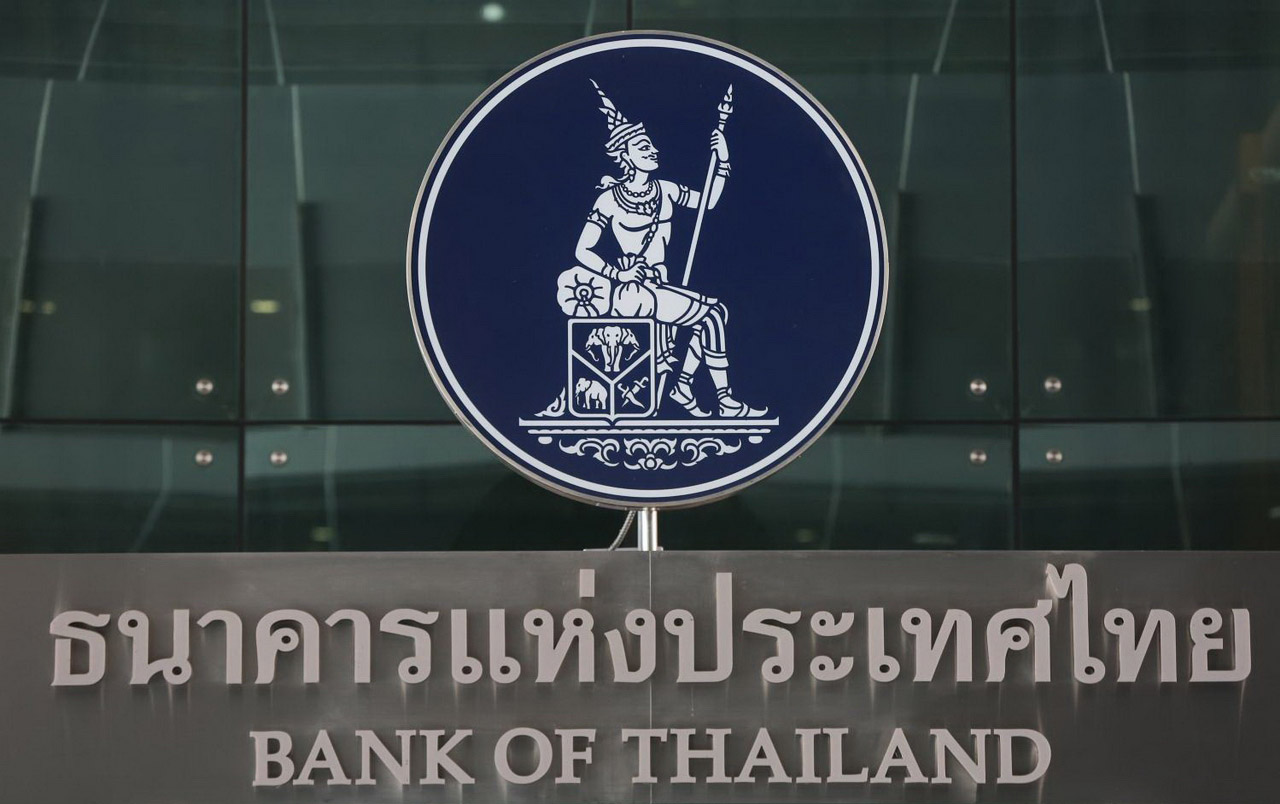
“Environmental, Social, and Governance,” or “ESG” has increasingly become a topic of discussion.
The driving force for the fast-paced development of ESG stems from the 2030 Agenda for Global Sustainable Development Goals (SDGs), adopted by all United Nations Member States in 2015, and the Paris Agreement. The Paris Agreement, which came into force in 2016, has been joined by 191 Parties and creates commitments from all countries, including developing nations such as Thailand, to reach their greenhouse gas emissions reduction targets.
Thailand launched a five-year National Economic and Social Development Plan to adhere to the 20-year National Strategy Framework (2017-2036), meet SDG targets, the Thailand 4.0 Policy, and other reforms. While the momentum for ESG started in the governmental sector, all stakeholders (including the private sector, financial institutions, and investors) are key players in driving and maintaining sustainable practices. Lessons from the Covid-19 pandemic are also an accelerator for companies to shift their focus to become more resilient to crises. By emphasizing responses to social and environmental factors rather than traditional corporate operational outlooks, visionary companies are developing a compass to be better equipped to respond to future crises and steer through volatility.
What does ESG entail?
ESG encompasses a broad range of issues, for example:
- Environmental: climate change, pollution, deforestation, energy efficiency, waste management, and natural resources utilization
- Social: human rights, labor standards, community relations, gender and diversity, data protection and privacy, health, and safety measures
- Governance: corporate governance, compliance, bribery and corruption measures, executive compensation, taxation approaches, lobbying, political contributions, and whistleblower schemes.
In brief, environmental criteria are used to evaluate a company’s performance as a steward of nature, its utilization of natural resources, the impact its operations have on the environment, and compliance with environmental regulations. Social criteria focus on a company’s relationship with employees, suppliers, customers, and the communities where they operate. Governance criteria address a company’s leadership, its management and control, and shareholders’ rights. However, ESG issues are often intertwined, and it can be challenging to classify ESG issues as only environmental, social, or governance issues.
Private sector in the spotlight
Recently, stakeholders have come to believe that ESG factors have a practical purpose beyond any ethical concerns. By following ESG guidelines, investors can apply exclusionary screening to avoid engaging with companies whose practices could give rise to risk factors, and in turn, selecting operators that are better placed for sustainable returns. Companies also recognize that being a good corporate citizen is more than just being philanthropic but is essential for bolstering their reputations and enhancing the relationship with their stakeholders. With social media becoming an influential part of today’s world, a company’s reputation, and its commitment to ESG could change the way customers and investors behave and make decisions. Factors other than a company’s financial statements and its profits or losses could become of equal importance. These combed forces are pushing ESG issues to the top of board and shareholders’ meeting agendas.
Against this backdrop, there have been efforts from various entities from the banking, capital markets, and insurance sectors to implement ESG strategies. Examples of such policies include: (1) the Bank of Thailand’s three-year strategic plan (2020-2022) wherein one of the key objectives is to encourage financial institutions to integrate sustainability (ESG) into their business and operating models; (2) the Securities and Exchange Commission’s (SEC) Corporate Governance Code (CG Code) to ensure best practices in corporate governance, the Investment Governance Code (I Code) to encourage institutional investors to adopt a more diligent and active approach towards incorporation of ESG/sustainability criteria, and the promotion of capital allocation towards sustainable projects, e.g., green bonds; (3) the Stock Exchange of Thailand’s (SET) promotion of sustainability disclosures among listed companies of all sizes and the launch of the Thailand Sustainability Investment (THSI) and SETTHSI indexes comprising of listed companies that pass the THSI assessment criteria; (4) the Ministry of Finance’s development of a Sustainable Financing Framework with the intention to issue sovereign green, social and sustainability bonds, and loans; and (5) the Office of Insurance Commission’s reinforcement of sustainability and insurance themes in the Insurance Development Plan.
At the current time, only listed companies are required by the SET to submit sustainability reports and disclosures annually. However, private companies are voluntarily disclosing their compliance with ESG criteria, such as reduction of their carbon footprint, increased transparency in supply chains, and commitments to implementing good governance at all levels to showcase their business integrity, despite the lack of mandatory disclosure obligations.
In addition, private companies are obligated to comply with laws and regulations governing the three pillars—E, S, and G—as they are often part of the criteria allowing business operators to maintain their licenses, retain employees, keep reputational benefits, and ensure trust from long-term investors and customers. These laws include, among many others, the Constitution, the Civil and Commercial Code, the Enhancement and Conservation of the National Environmental Quality Act, B.E.2535 (1992) (as amended), the Factory Act, B.E.2535 (1992) (as amended), the Hazardous Substance Act, B.E.2535 (1992) (as amended), the Labor Protection Act, B.E. 2541 (1998) (as amended), the Occupational Safety, Health, and Environment Act, B.E. 2554 (2011), the Public Health Act, B.E. 2535 (1992) (as amended), and Act Supplementing the Constitution Relating to the Prevention and Suppression of Corruption, B.E. 2561 (2018).
ESG – getting the deal through
As companies are starting to implement ESG practices into their direct management and operations and across their supply chains, companies are also seeking business partners that are committed to the same values. A company’s ESG performance plays an increasingly important role as one criterion for business cooperation. In this regard, ESG due diligence, that includes both familiar and new criteria, may be requested and can touch on various issues ranging from compliance with environmental regulations, pollution and waste control, hazard-prevention measures, labor rights, occupational safety controls, sexual harassment prevention, corporate reporting, taxation, corruption prevention policies and more. The results of an ESG due diligence will generally lead to a request for appropriate representations and warranties, indemnities, or even a purchase price adjustment in the case of any future developments occurring or failing to occur. Reliance on self-disclosures may not be adequate and conducting a proper ESG due diligence may soon be an essential part of deals.
In fact, ESG implementation may dictate the chance of companies’ access to capital as a number of institutional investors have publicly committed to taking ESG into account when making investment decisions. One example of this is the Thai Government Pension Fund’s new guidelines for socially responsible investing. Alongside investors’ increased focus on ESG, lenders are also prescribing ESG principles that a company must meet to receive funding. This is affirmed by the Memorandum of Understanding on Sustainable Banking Guidelines for Responsible Lending signed by all Thai Bankers’ Association (TBA) members, which focuses on promoting responsible lending, encouraging banks to incorporate ESG risks into their lending strategies, and transferring the strategies into implementation. On a global level, the IFC Performance Standards, the Equator Principles and Principles for Responsible Investment have been developed to deal with the assessment and management of the impact of large-scale development projects on the environment and society. Business operators, especially those with cross-border operations, will have to consider both local and international ESG standards.
Furthermore, we have started to see contractual relationships where compliance with ESG is mandatory, and non-compliance can lead to an event of default and termination. In the future, we envisage that ESG-related practices will be widespread across all industries and jurisdictions, e.g., an insurance company may require companies to uphold ESG principles to be eligible for insurance policies, or ESG practices will be a condition of a permit or concession required for the project.
Conclusion
Implementation of ESG can promote long-term sustainable growth through satisfying both customers and employees, being a preferential business partner, and providing better access to capital. Companies in all sectors should pay more attention to ESG developments and be more active in understanding legal compliance with ESG-related requirements, assess their capabilities, and revisit their policies periodically to ensure that they have appropriate strategies to deal with ongoing changes in laws and regulations. This can mitigate against the risk of incurring penalties for violation of laws and suffering from reputational damage, which could result in the loss of business opportunities. To reduce transactional risks, sellers may consider conducting an ESG due diligence on a vendor to better position themselves in front of buyers. Meanwhile, legal counsels will need to take ESG risks into consideration when drafting purchase agreements and during negotiations. Ultimately, compliance with ESG is likely to become part of the new normal and a key factor for entities in both the public and private sectors to thrive in challenging climates, while those who fail to act on ESG will likely face greater risks and miss significant opportunities.
How can legal advisors help with ESG compliance?
The breadth of possible issues that may arise from non-compliance with ESG requires that legal specialists from a broad range of areas work together to provide comprehensive advice on how to ensure that, where necessary, an organization and its supply chain are ESG compliant. Advisors can also identify what the possible risks of non-compliance might be and areas to address as a priority depending on the specific circumstances and requirements of each organization.
This publication is intended to highlight an overview of key issues for ease of understanding, and not for the provision of legal advice.
For more information and queries on the bidding submission, please contact the key contact person(s).

Nuanporn Wechsuwanarux +66-2-009-5161 |

Sooksun PopunNgarm +66-2-009-5112 |

Supavadee Sirilerkwipas +66-2-009-5093 |

Onpreeya Kitcharoen +66-2-009-5097 |
![]()
Chandler MHM Limited
17th and 36th Floors, Sathorn Square Office Tower, 98 North Sathorn Road
Silom, Bangrak, Bangkok 10500 Thailand


























































 Chandler MHM Limited
Chandler MHM Limited Jessada Sawatdipong
Jessada Sawatdipong







